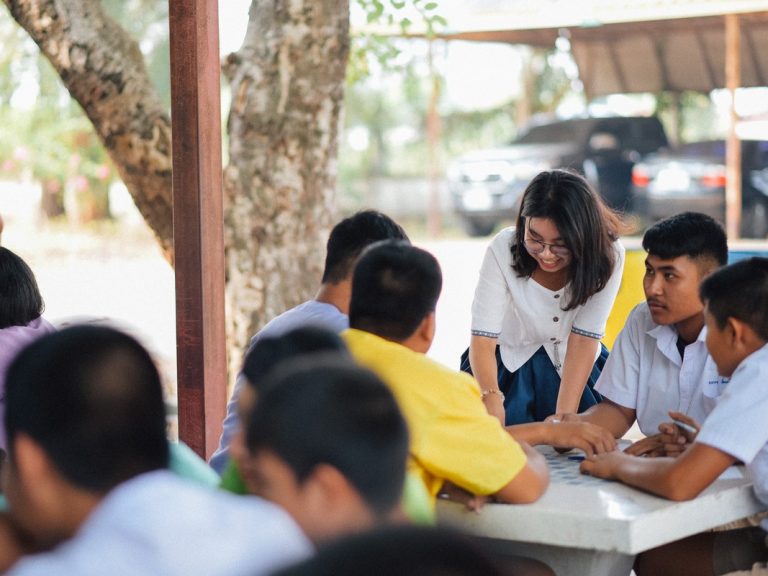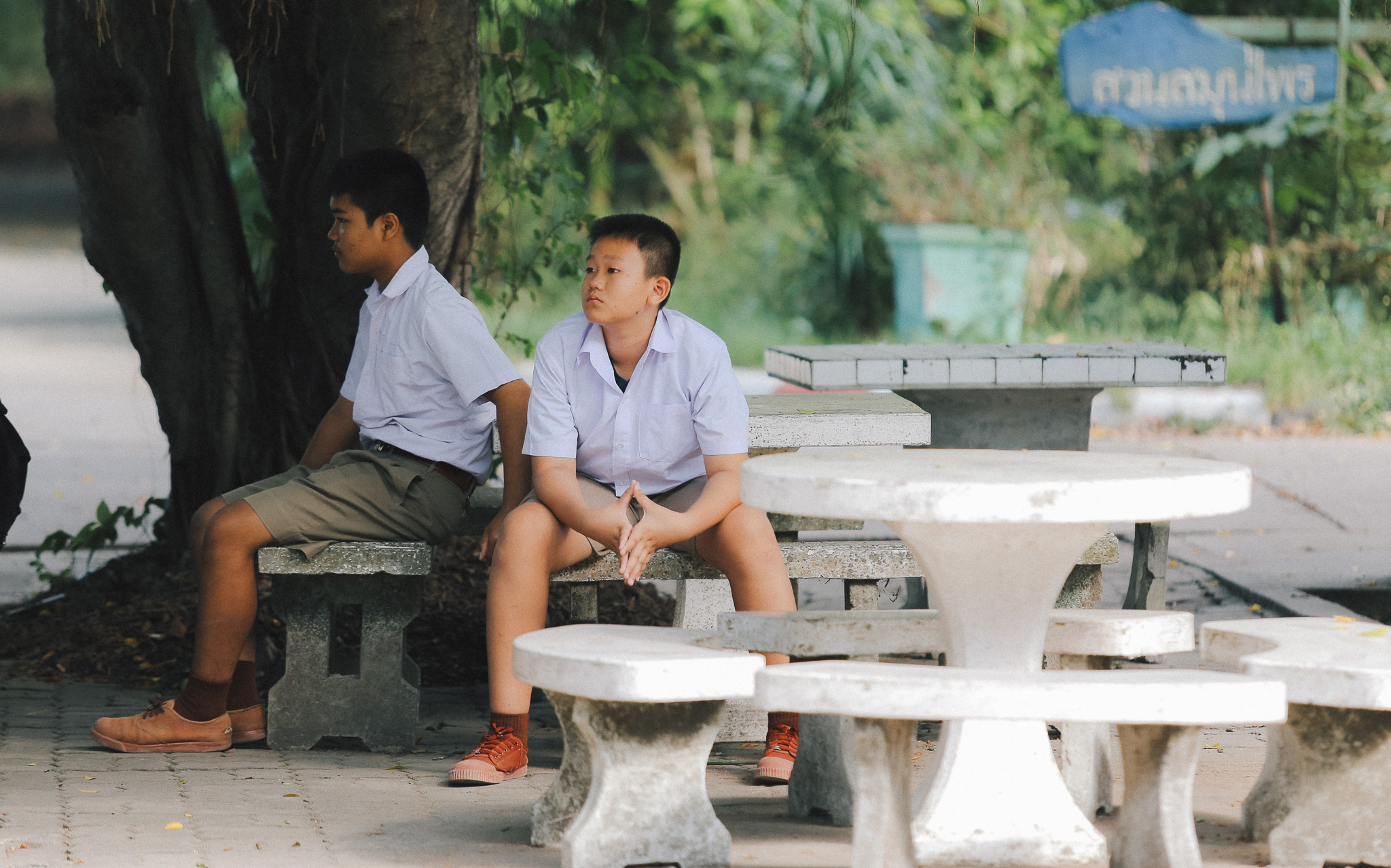Climate Crisis & Technology Revolution: Education Needs to be Ready
Thai children will be facing significant challenges soon, such as climate change and the evolving workforce due to ever-changing technology. However, Thai education may not adequately prepare children and youth for these impending global dynamics.

According to UNICEF Thailand’s U-Report, more than 63% of Thai youth possess only basic knowledge about climate change, or none at all, and most are uncertain about their ability to cope with the problems. Climate change has also directly impacted Thailand’s agriculture, one of the country’s main sources of income. It is estimated that Thailand will face potential agricultural losses ranging from 15% to 50% by 2030 due to this challenge (World Bank).
Furthermore, the rise of new technologies challenges Thai children to develop skills that cannot be replaced by such technologies and AI, such as critical thinking, creativity, collaboration as well as financial literacy. The latest PISA 2022 results indicate that Thai youth scored an average of 20.9 in creativity, significantly lower than the OECD average of 33. The financial literacy score has not yet been released, highlighting a potential risk for Thai youth in accessing quality employment opportunities in the future.
Tini–Thitaporn Sutjiadi, Senior Partnerships Associate at Teach For Thailand, commented on the lack of awareness regarding climate change and workforce shifts:
“The situation is becoming increasingly urgent. The world is changing rapidly, yet our education system has not fully integrated critical subjects and essential skills such as critical thinking and collaboration. As a result, we are working to connect these issues with our students to enhance their awareness. It is also imperative that teachers are informed and equipped to prepare curricula that address real-world occurrences, ensuring that students understand where to focus and how to cope with the consequences.”
To address these challenges, Teach For Thailand has launched the “Future Ready” and “Environmental Education” initiatives as part of the foundation’s 2024 – 2026 strategy. These initiatives aim to equip students, teachers, and communities with the awareness and skills to navigate the changing global dynamics.
The “Future Ready” initiative prepares students for the evolving workforce, particularly in response to the rise of technology and the need to equip them with soft skills beyond academic knowledge.
Tini remarked, “At present, only a few demographics of children have access to quality education. Those without such access lack necessary knowledge and skills such as creativity, critical thinking, adaptability, and the ability to collaborate with people from diverse backgrounds, exacerbating educational inequity and proving to be an urgent matter.”
“Future Ready” focuses on raising awareness about future trends, self-awareness, and adaptive problem-solving skills, including financial literacy education for students. It invites teachers to learn more about the shifting workforce market through discussions with experts and encourages students to become more aware of these issues by initiating projects related to themselves and their communities. It also connects Fellows with local and national bodies to integrate real community problems into teaching.
The “Environmental Education” initiative raises awareness about climate change among students by building teaching capacity and creating teaching packages that help Fellows incorporate relevant content and skills. This ensures that students can become leading figures in solving environmental issues.
Before commencing environmental education classes, Teach For Thailand trains Fellows to integrate climate aspects into solving community problems. This training emphasizes the importance of raising climate change awareness and increasing relevant skills among students to enhance their capacity, knowledge, skills, and leadership for future community improvement.
“Teach For Thailand is not an expert in climate change, but we have the capacity for leadership development. Therefore, we focus on collaborating with experts from different fields to pilot these projects over the next three years. We will use the data collected from teachers and students to identify the most effective practices. These insights will be shared with others and scaled to different parts of Thailand,” explained Mew–Watchara Dachoponchai, Data and Impact Manager at Teach For Thailand and the manager of the two projects.
“These initiatives were inspired by our reflections from the past decade and our plans for the future, focusing on what we do best and what we need to improve,” Mew continues.
“We found that our Fellows are determined to take action and demonstrate strong leadership results. However, while students have improved in knowledge, skills, and mindset in some areas, their leadership development has not increased as significantly.
Mew recalls his observations from his work as part of the first cohort of Fellows:
“The world has changed, but our education system remains the same in addressing both the workforce market and climate change. Especially the latter, we have always been taught to ‘prevent’ climate change, but the changes are here, children are already experiencing the effects. When we look at classrooms, they have not changed much; the same can be said about the curricula and schools.”
“Fellows are still lacking knowledge and tools to teach about these two challenges. Hence, we decided to spearhead these projects to elevate classroom learning, connect it with real-life problems, and encourage leadership. This way, students not only learn about the world but also become proactive in solving its problems. They may create other projects and reflect on their learning independently.”
“So one day, they may rise as leaders to change their lives and our society, and pass on these positive trends to the next generations,” Mew concludes.
Teach For Thailand is determined to develop tools and frameworks that connect to real-world contexts and drive positive changes that benefit children, youth, and Thai education. Become part of this change with Teach For Thailand here, to ensure more equitable education and just educational opportunities for children in Thailand.


